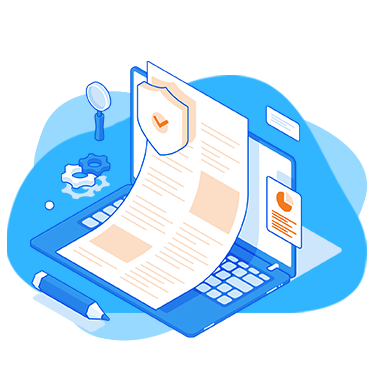Taking the Pledge: Safeguarding Data on Data Privacy Day
What is Data Privacy Day?
Data Protection Day, celebrated on January 28, was initiated by the Council of Europe in 2006 to mark the anniversary of the ‘Convention 108’ on personal data protection. Originally a European initiative, it has become globally recognized as Data Privacy Day. The day aims to raise awareness about the significance of privacy and data protection for individuals and organizations. It emphasizes the responsibility of organizations to demonstrate compliance and be accountable for the safe handling of personal data.
Introduction:
On the occasion of Data Privacy Day, it’s crucial to highlight the essential steps individuals and organizations can take to ensure the security of their information. At eLearning Stack, we recognize the significance of safeguarding data and want to share insights on effective data protection practices.
1. Securing Our Web & IT Assets:
a. Advanced Security Measures: Prioritize the implementation of advanced firewall systems and security protocols to shield against cyber threats. Regular updates should be a standard practice to maintain a secure IT infrastructure.
b. Regular Security Audits: Regularly evaluate and audit the security of your web and IT assets to identify vulnerabilities. Addressing weaknesses promptly is key to staying ahead of potential cyber threats.
c. Strict Access Controls: Implement strict access controls to prevent unauthorized access. Regular reviews of user permissions ensure that only authorized personnel can access sensitive data.
2. Safeguarding Our Data by Regularly Backing Up:
a. Automated Backup Systems: Implement automated backup systems to consistently and securely back up critical data. This practice enables swift restoration of operations in the event of data loss or a cyberattack.
b. Offsite Backup Storage: Consider offsite storage as part of your backup strategy to provide an additional layer of protection against physical disasters or incidents impacting your primary data center.
c. Encryption of Backup Data: Prioritize encryption of backup data during transmission and storage. This additional layer of security ensures that even if backup files are compromised, the information remains unreadable without the proper decryption keys.
3. Educating Our Audience, Employees & Team Members on Cyber Security:
a. Regular Training Programs: Invest in ongoing cybersecurity training for all stakeholders, emphasizing best practices, threat awareness, and appropriate responses to security incidents.
b. Interactive Workshops and Simulations: Conduct interactive workshops and simulations to enhance practical understanding, allowing team members to actively participate and learn how to respond to potential cyber threats effectively.
c. Promoting a Security-Conscious Culture: Encourage open communication about security concerns and promote a proactive approach to reporting any suspicious activity. Building a culture of cybersecurity awareness is essential.
4. Protecting Our Personal Financial Assets:
a. Multi-Factor Authentication: For financial transactions and access to sensitive financial information, implement multi-factor authentication for added security.
b. Regular Monitoring and Alerts: Utilize real-time monitoring systems to track financial transactions, with automated alerts ensuring prompt action in response to any unusual activity.
c. Collaboration with Financial Security Experts: Regularly seek insights from financial security experts to align security measures with industry best practices and stay informed about emerging threats.
Conclusion:
This Data Privacy Day, it is imperative to focus on individual and organizational efforts to secure data and protect privacy. By adopting robust security practices, implementing effective backup strategies, educating stakeholders, and safeguarding personal financial assets, we can collectively contribute to responsible data management and privacy protection. As technology advances, our dedication to upholding data confidentiality and integrity should evolve accordingly.
Should you require any guidance or support in implementing these measures, feel free to reach out to us at [support@elearningstack.com]. Together, let’s reinforce the foundation of responsible data management and privacy protection.

